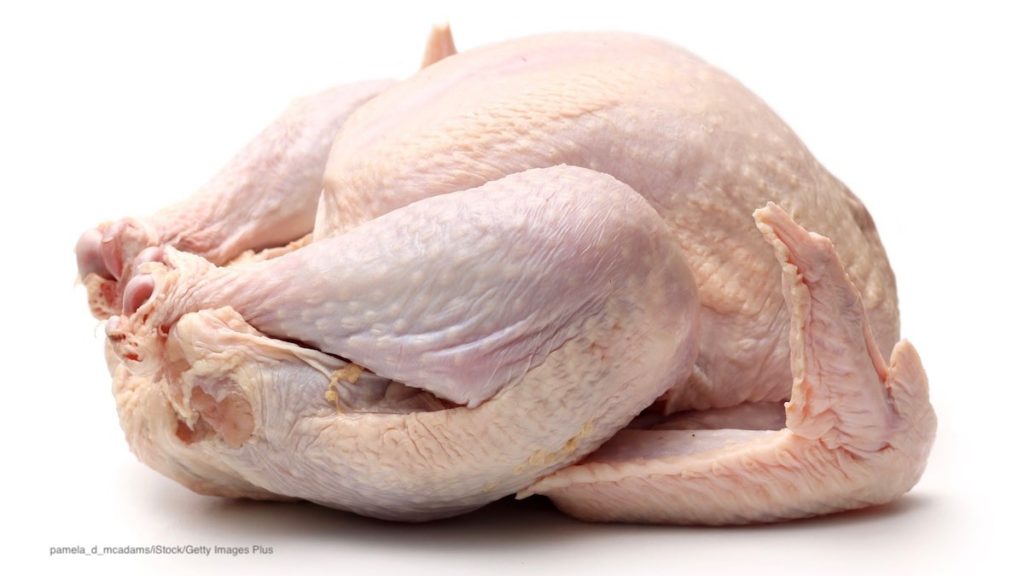The raw chicken Salmonella Infantis outbreak was the number 9 largest food poisoning outbreak of 2018, with at least 92 people sickened in 29 states. Twenty-one people were hospitalized in this outbreak.

The CDC notice stated that “many types of raw chicken products from a variety of sources are contaminated with Salmonella Infantis and are making people sick.” That broad statement is bad news for the American consumer. A single supplier of raw chicken products hasn’t been identified.
That means that the outbreak strain is present in live chickens and in many type of raw chicken products, meaning it may be widespread in the chicken industry. Food safety experts have warned consumers for years to treat raw chicken as if it is contaminated. And this outbreak is scattered all over the country, although it seems to be concentrated in the northeastern United States.
The case count by state is: Alabama (1), California (1), Connecticut (1), Delaware (2), Florida (2), Georgia (2), Hawaii (1), Illinois (5), Indiana (1), Kentucky (1), Louisiana (1), Maine (1), Maryland (2), Massachusetts (9), Michigan (3), Minnesota (3), Missouri (3), North Carolina (4), Nebraska (1), New Jersey (9), New York (10), Ohio (7), Pennsylvania (11), Rhode Island (2), South Carolina (1), Tennessee (1), Texas (2), Virginia (2), and Washington (2). The patient age range is from less than 1 year to 105. Illness onset dates range from January 19, 2018 to September 9, 2018.
The outbreak notice was filled with advice on how to handle raw chicken. Government officials are not recommending that consumers avoid eating “properly cooked” chicken. Make sure that you always wash your hands after handling raw chicken. Cook raw chicken to 165°F, tested with a food thermometer. Be careful about cross-contamination. And – don’t feed raw diets to your pets. Raw chicken pet food can be contaminated with pathogens.
The Salmonella Infantis in this outbreak that has made people sick is resistant to many antibiotics, which means that people may be sicker and need to be hospitalized if they contract this infection. The bacteria is resistant to: ampicillin, ceftriaxone, chloramphenicol, ciprofloxacin, fosfomycin, gentamicin, hygromycin, kanamycin, nalidixic acid, streptomycin, sulfamethoxazole, tetracycline, and trimethoprim-sulfamethoxazole.




